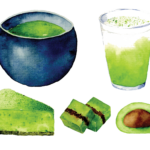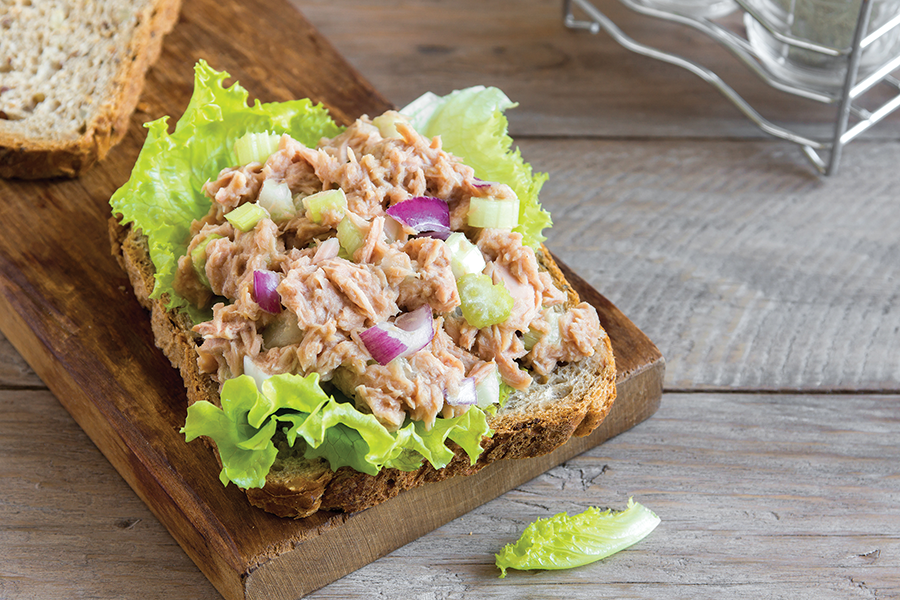 Known for being high in antioxidants, green tea has long been considered part of a healthy diet. Recently, however, a form of green tea—matcha—has surged in popularity among tea drinkers and healthy lifestyle enthusiasts, though it has been around for hundreds of years.1 Matcha is a versatile powdered form of green tea that can be prepared as a hot beverage on its own or mixed into other hot drinks, such as lattes. It can also be added to iced drinks and smoothies or even sprinkled on top of granola or cereal. As for health benefits, let’s take a closer look.
Known for being high in antioxidants, green tea has long been considered part of a healthy diet. Recently, however, a form of green tea—matcha—has surged in popularity among tea drinkers and healthy lifestyle enthusiasts, though it has been around for hundreds of years.1 Matcha is a versatile powdered form of green tea that can be prepared as a hot beverage on its own or mixed into other hot drinks, such as lattes. It can also be added to iced drinks and smoothies or even sprinkled on top of granola or cereal. As for health benefits, let’s take a closer look.
WHAT IS MATCHA?
First, what exactly IS matcha? The practice of preparing and drinking powdered green tea was first formed into a ritual by Chan Zen Buddhist monks in China nearly 1,000 years ago. After studying with monks in China, a Japanese Buddhist monk named Eisai returned to Japan in the year 1191, bringing Zen Buddhism and the matcha tea ritual with him. From that point, matcha became a traditional part of the Japanese tea ceremony.2
Like other green teas, matcha is derived from the unfermented leaves of the Camellia sinensis plant; however, it is grown and harvested a bit differently.3 Several weeks before harvest, matcha farmers begin covering their tea plants to limit exposure to direct sunlight. This increases chlorophyll production, boosts the amino acid content, and gives the leaves their dark green hue.4 The young tea leaves are then picked, laid out to dry, deveined and destemmed, and ground into a bright green powder called matcha.1
BENEFITS OF MATCHA
While there is an abundance of literature supporting the health benefits of green tea, peer-reviewed, clinical research specifically on the health benefits of matcha is relatively scarce. However, because matcha is a type of green tea, it potentially offers similiar health benefits. Let’s review the benefits of green tea.
Antioxidants. Green teas are high in antioxidants, which have been shown to counteract the negative effects of free radicals, unstable moleciules in our bodies that result from exposure to environmental or lifestyle stressors (e.g., smoking, consuming a highly processed diet, pollution).6 Antioxidants help protect the cells under attack by free radicals.
Oxidative stress. Free radicals are unstable oxygen-containing molecules with an uneven number of electrons. Antioxidants are molecules that can donate electrons to free radical molecules to neutralize them. When there is an imbalance between free radicals and antioxidants in your body, oxidative stress can occur.5,6 Prolonged oxidative stress damages cells, which can lead to negative health outcomes, such as heart disease, certain types of cancer, and neurodegenerative diseases. Antioxidants, which are abundant in green tea, can prevent oxidative stress. Matcha also contains antioxidants, and thus may be similarly effective in fighting the damage caused by oxidative stress.1
Liver health. The liver does many things, such as regulate blood sugar, filter toxins from the blood, and break down and store fat. The liver also produces HDL cholesterol (the “good” kind) and helps our bodies clear LDL cholesterol (the “bad” kind). Green tea contains catechin, a chemical that has been shown to help reduce LDL cholesterol. Catechin is thought to assist the liver in clearing LDL cholesterol from the blood by inhibiting cholesterol synthesis and absorption.5 A meta-analysis of 15 studies showed a significant protective effect of green tea on the liver, indicating that regular consumption lowered the risk of liver cancer, fatty liver disease, hepatitis, and liver cirrhosis.7,8
Obesity and diabetes. Various studies have shown beneficial effects of green tea on cardiovascular diseases, obesity, and Type 2 diabetes. One randomized clinical trial reported that participants who drank four cups of green tea daily experienced a reduction in several risk factors for diabetes, including high body mass index (BMI) and systolic blood pressure.9 Some research suggests that the catechins in green tea, especially when combined with caffeine, are beneficial in managing weight (by speeding up the metabolism and regulating the endocrine system), food intake, and lipid and carbohydrate metabolism.5,10,11 Green tea, and matcha especially, packs a heavy punch in terms of caffeine. In fact, just one gram (or roughly half a teaspoon) of matcha has 35mg caffeine.4
Cognitive function. Multiple studies have linked caffeine consumption to improved mood, reaction times, and memory. In a recent, very small intervention study, researchers assessed the effects of matcha consumption on mood and cognitive performance. Participants who consumed matcha in beverage or nutrition bar form showed “…significant improvements in tasks measuring basic attention abilities and psychomotor speed in response to stimuli over a defined period of time,” compared to participants who consumed placebo products. However, no effects on mood were observed.12
BOTTOM LINE
Research supports a variety of health benefits associated with green tea consumption, ranging from reducing risks for metabolic disorders, such as Type 2 diabetes and obesity, to certain chronic diseases, such as cardiovascular and liver diseases. However, many of these studies specifically assessed green tea, not matcha. Though matcha is made from the same green tea leaves and contains the same compounds as green tea in dried leaf form, there are differences in how the tea used to make matcha is grown, harvested, and processed, which may or may not affect how our bodies react to matcha vs. green tea. Additional research is needed to confirm whether matcha confers the same benefits as green tea.
Editor’s note. While matcha is considered to be generally safe, it is more concentrated than regular green tea and contains a lot of caffeine, so moderation is key. The caffeine in matcha may cause unpleasant side effects, such as headache, insomnia, irratability, stomach upset, and/or diarrhea/constipation in sensitive individuals. Consult with your physician or a qualified nutritionist to see if matcha consumption is right for you or your family, especially for those who are sensitive to caffeine, are pregnant, or are very young.
SOURCES
- MarketWatch website. At 7.5% CAGR, North America Matcha Market to be worth more than $1 Billion by 2026. 21 Mar 2021. https://www.marketwatch.com/press-release/at-75-cagr-north-america-matcha-market-to-be-worth-more-than-1-billion-by-2026-2021-03-22. Accessed 24 Mar 2021.
- Sifferlin A. Should you drink matcha tea? 8 Mar 2018. TIME Magazine website. https://time.com/5188377/matcha-tea-benefits/. Accessed 24 Mar 2021.
- Pure Leaf website. Matcha 101: introduction to matcha. https://www.pureleaf.com/us/matcha-101-introduction-to-matcha. Accessed 25 Mar 2021.
- Link R. 7 proven ways matcha tea improves your health. 24 Feb 2020. Healthline website. https://www.healthline.com/nutrition/7-benefits-of-matcha-tea. Accessed 25 Mar 2021.
- Chacko SM, Thambi PT, Kuttan R, Nishigaki I. Beneficial effects of green tea: a literature review. Chin Med. 2010;5:13.
- EatRight site. Antioxidants—protecting healthy cells. 25 Mar 2021. https://www.eatright.org/food/vitamins-and-supplements/types-of-vitamins-and-nutrients/antioxidants-protecting-healthy-cells. Accessed 25 Mar 2021.
- Yin X, Yang J, Li T, et al. The effect of green tea intake on risk of liver disease: a meta analysis. Int J Clin Exp Med. 2015;8(6):8339-8346.
- Sakata R, Nakamura T, et al. Green tea with high-density catechins improves liver function and fat infiltration in non-alcoholic fatty liver disease (NAFLD) patients: a double-blind placebo-controlled study. Int J Mol Med. 2013;32(5):989-994.
- Mousavi A, Vafa M, et al. The effects of green tea consumption on metabolic and anthropometric indices in patients with Type 2 diabetes. J Res Med Sci. 2013;18(12):1080-1086.
- Ahmad, RS Butt MS, Sultan MT, et al. Preventive role of green tea catechins from obesity and related disorders especially hypercholesterolemia and hyperglycemia. J Translation Med.
- Hursel R, Viechtbauer W, Westerterp-Plantenga MS. The effects of green tea on weight loss and weight maintenance: a meta-analysis. Int J Obes (Lond). 2009;33(9):956-961
- Dietz C, Dekker M, Piqueras-Fiszman B. An intervention study on the effect of matcha tea, in drink and snack bar formats, on mood and cognitive performance. Int Food Res J. 2017;99(1)72-83.





